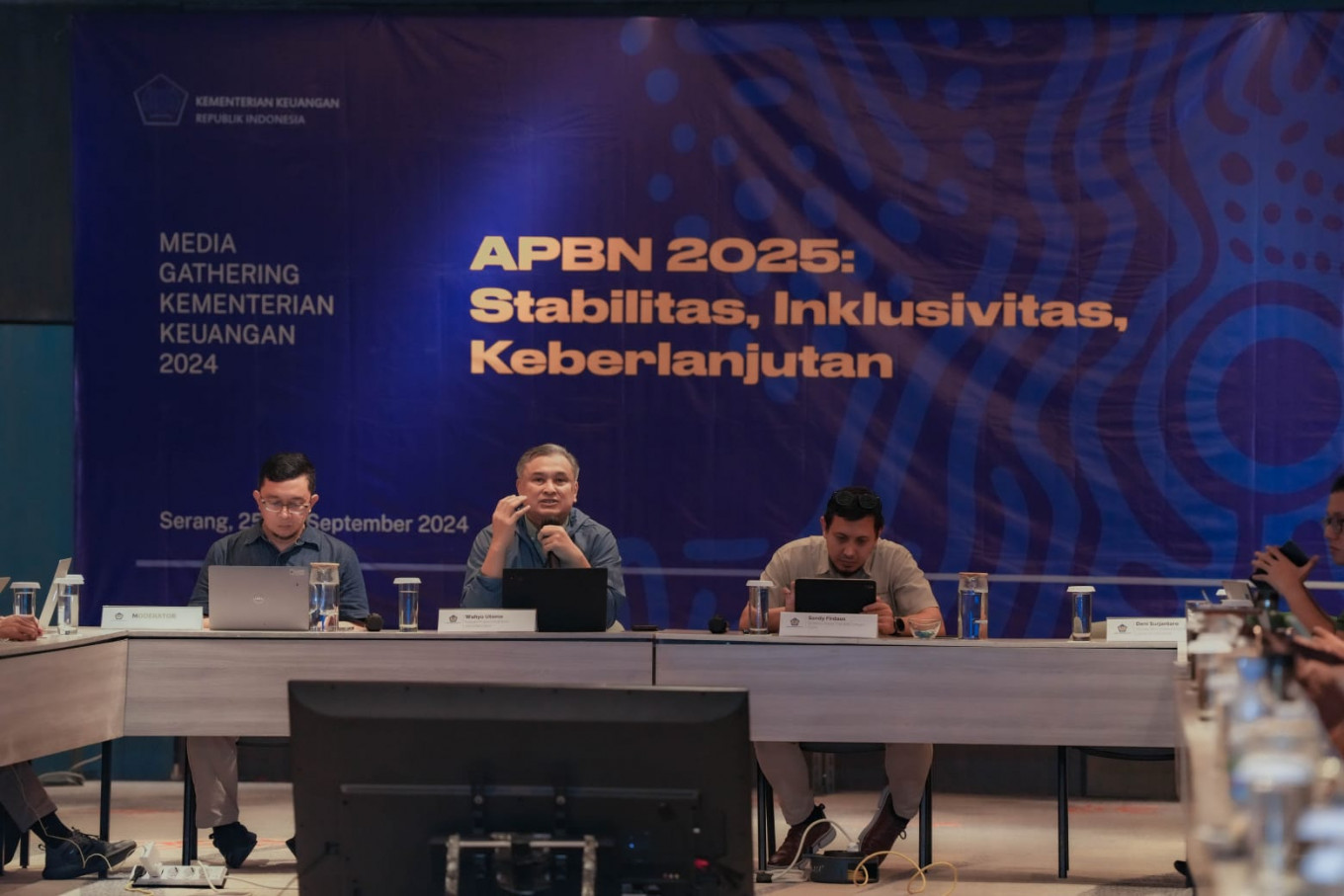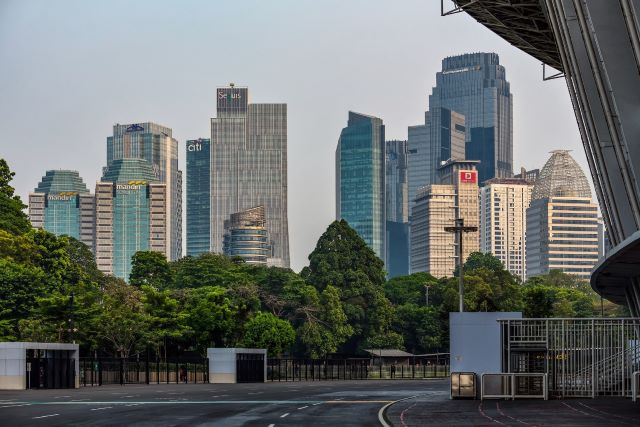Popular Reads
Top Results
Can't find what you're looking for?
View all search resultsPopular Reads
Top Results
Can't find what you're looking for?
View all search results2025 state budget accommodates new administration’s flagship programs
Change text size
Gift Premium Articles
to Anyone
M
inistry/institution spending has been adjusted from the original Rp 976.8 trillion in the 2025 draft state budget (RAPBN) to Rp 1,160.1 trillion in the 2025 state budget (APBN). Meanwhile, non-ministry/institution spending has decreased from Rp 1,716.4 trillion to Rp1,541.4 trillion.
The adjustments have been made as the funding to support leading programs has been distributed to technical ministries and institutions, as conveyed by the head of the State Budget Policy Center at the Finance Ministry’s Fiscal Policy Agency (BKF) Wahyu Utomo at a media event in Anyer, Banten on Wednesday.
Wahyu explained that the new government's leading programs in 2025 have been accommodated in ministry/institution spending of Rp 121 trillion, which includes the free nutritious meal program spending of Rp 71 trillion that will be managed by the National Nutrition Agency. The program aims to provide daily lunch to pregnant women, breastfeeding mothers, toddlers and students at all levels of education.
Another flagship program is a free health check, with a budget allocation of Rp 3.2 trillion. The program, which aims to reach 52.2 million people, includes blood pressure and blood sugar tests as well as X-rays for catastrophic disease screening. This will run alongside a program to eradicate tuberculosis, which will have a budget of Rp 8 trillion.
Still related to the new government's flagship spending in the health sector, Rp 1.8 trillion has been allocated to the construction of high quality hospitals in the regions to upgrade type D hospitals to type C, along with infrastructure and health equipment.
The allocation of other flagship programs from the new government accommodated in the 2025 APBN includes school renovations at Rp 20 trillion and the construction of integrated flagship schools at Rp 2 trillion. Flagship programs in the food security sector have been allocated Rp 15 trillion, including the financing of the construction of national, regional and village food barns, the intensification of 80,000 hectares and the extensification, or rice field creation, of 150,000 ha.
Wahyu explained that the 2025 APBN is special as it is designed to support the effectiveness and smoothness of transformation while also maintaining the credibility and sustainability of the APBN.
"This is why in the APBN, the essence is the continuation of programs that are already good, supplemented with the addition of a variety of better, regular programs. This ensures continuity and strengthens the goal for acceleration," he concluded.
Source: Finance Ministry











